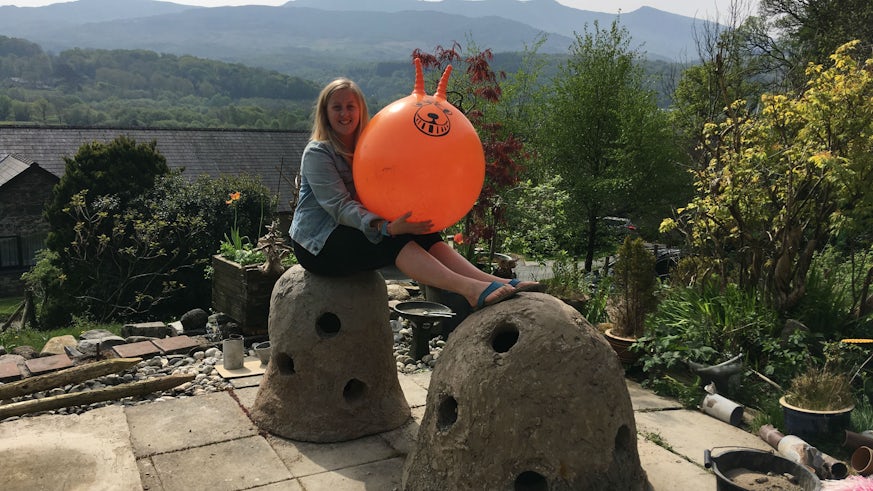Fish hives replace lost Caribbean coral reefs
26 June 2019

The coral reefs of our oceans are dying worldwide, but a Kickstarter campaign to create new artificial reefs from every day materials may be the answer to this unprecedented global challenge.
Coral reefs provide support for a quarter of all marine species, as well as providing humans with food, coastal protection and medicine. But these underwater ecosystems are dying at an alarming rate due to human action - with bleaching, pollution and overexploitation being responsible for killing nearly 60% of coral cover in the Caribbean.
Kath Whittey, a PhD Student from Cardiff University’s School of Biosciences, has been using 3D modelling to study and monitor marine environments in Tobago and has constructed a novel solution to coral reef loss.
Her research, funded by KESS, led her to develop Fish Hives, constructed from concrete and moulded around a space hopper, to provide an affordable and easily reproducible structure to mimic the coral habitat.
“With changing climates, the future of coral reefs is now in our hands,” said Kath.
“The structure of coral provides nooks and crannies that are a perfect habitat for other reef species. Numerous fish species are losing their habitats due to the death of our coral reefs.
“We need an affordable, easy to make, reef structure that can be deployed by anyone. Therefore, we developed the Fish Hive.
“Our Fish Hive is made by using a space hopper and locally sourced bamboo to create a mould. Concrete is then used to make a dome, which mimics the coral habitat.”
The project will be supported by a new Kickstarter campaign, aiming to raise £2,500 to create artificial coral reefs, which will then be placed in Tobago where they can be monitored by Cardiff University and Environmental Research Institute Charlotteville scientists.
Kath said: “Artificial reefs replicate the space and complexity that coral provides, but currently they are expensive and difficult to build. Our Fish Hives offer a cheap and easy solution.
“Pilot hives will be placed on a reef in Tobago, where Cardiff University has held a long-term study site for over a decade.
“We can then monitor which reef fish use the Fish Hives, how quickly they make their home and which corals will form colonies.
“By creating an affordable concrete dome Fish Hive using local, every day and natural materials, these artificial reef structures would allow local dive groups and research communities to contribute to the ongoing mission to save our coral reefs.”
Share this story
Full details of our PhD and MRes programmes, including how to apply, are available in course finder.


